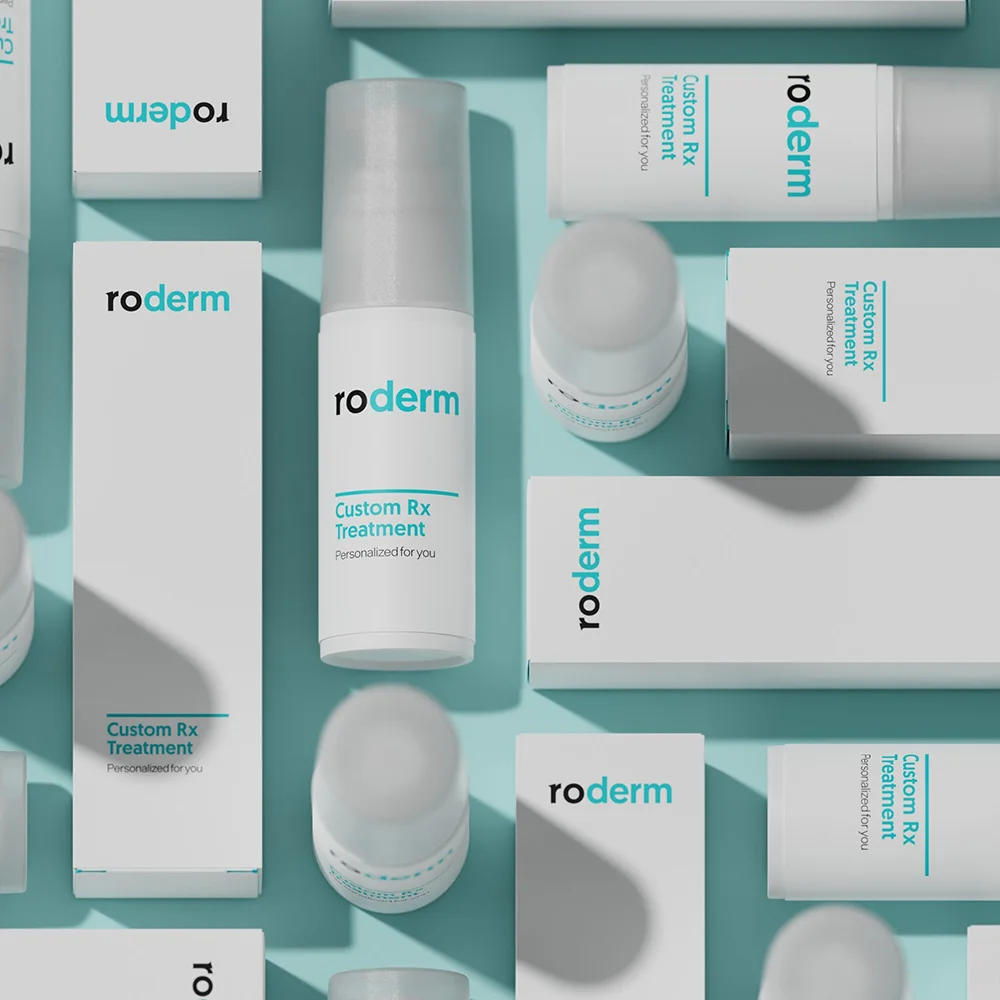Here's what we'll cover
Here's what we'll cover
Today, more men than ever are interested in taking care of their skin. Never the one to waste an opportunity, the skincare industry is targeting more offerings than ever toward men—from moisturizers and face oils, to serums and masks. All those products on the market can make establishing a skincare routine confusing. We’ve got you covered. Here are some of the best ways to get started.
What is a skincare routine
Just like your car needs regular maintenance, establishing a good skincare routine can help your skin stay healthy. Your routine should be something simple, so that you can follow it daily. But it should also cover the basics of healthy skincare, including:
Cleansing
Moisturizing
Protecting your skin from the sun
What to include in a basic skincare routine for men
While the media often makes it seem like only women care about their skin, one survey of over 300 men showed that 94% use some sort of daily skincare routine. When asked why, most men in the study reported that improving their appearance was their primary goal (Girdwichai, 2018). Clearly, building a good skincare routine is essential, regardless of a person’s gender. Let’s take a look at some of the basics of any skincare routine.
Cleanser
A daily routine starts with facial cleansing. In general, it's a good idea to wash your face twice a day—in the morning and at night—with warm water and a gentle facial cleanser. Never wash your face with bar soap because it can strip your skin of oil, making it too dry. A cleaner is usually gentler and can remove dirt and debris without drying out your skin.
You need the natural oils that your body makes to maintain your skin’s moisture. Skin needs moisture to maintain its integrity and do its job of protecting you. If you strip your skin of its oils, you get flaking, irritated, and unhealthy-looking skin (Harwood, 2021).
Moisturizer
An essential step in your skincare regimen is moisturizing. As mentioned earlier, keeping your skin hydrated allows for normal function and appearance. In addition to medical conditions, lots of everyday factors can lead to dry skin—frequent washing with harsh soaps, a low humidity environment, cosmetics, and more. Using a moisturizer traps water in your skin, combating these factors and keeping your skin looking healthy.
When choosing a moisturizer, you should think about your skin’s specific needs and skin type. For example, if you have acne or sensitive skin, your choice of moisturizer may vary. Most will include some type of oil (e.g. coconut oil, olive oil, lanolin, etc.) to stop your skin from losing moisture (Harwood, 2021).
Ingredients you may see in moisturizers include alpha-hydroxy acids (AHAs) like glycolic acid and lactic acid. These compounds promote skin cell turnover and improve hydration. Other components that help bring in and retain moisture include hyaluronic acid, glycerin, propylene glycol, honey, and sorbitol (Harwood, 2021).
Sun protection
Protecting your skin from the damaging effects of ultraviolet (UVA/UVB) radiation from the sun is vital to healthy, younger looking skin. Sun damage (photoaging) affects collagen and elastin fibers in the skin, leading to fine lines, wrinkles, and sagging skin. It also increases your risk of developing skin cancer (Gabros, 2021).
Sun protection includes things like clothing, hats, sunglasses, sun shades, etc. However, with regards to your skincare routine, this involves applying sunscreen everyday to slow the signs of aging.
The American Academy of Dermatology (AAD) recommends using an SPF 30 or higher that offers broad-spectrum coverage (meaning it protects from UVA and UVB radiation). Shielding against sun damage and both types of radiation may help prevent skin cancer and slow the signs of aging (Guerra, 2021).
Skincare routine and skin type
Your skin type can affect your skincare routine. The main skin types are normal, oily, dry, sensitive, or combination skin. A skin specialist is probably the best at determining your skin type, but there are some tricks you can do at home to figure it out.
Look at your face about an hour after washing it. If your face looks shiny or feels oily, you likely have oily skin. Alternatively, if your skin looks dry or flaky, you may be prone to dry skin. People with combination skin have areas of both oily and dry skin on their face. If you find that skincare products cause burning or irritation, then you likely have sensitive skin.
Skincare routine for oily skin
Just because you have oily skin, that doesn’t mean you should skip the moisturizer. However, you should look for lighter products—lotions tend to have less oil than creams. Moisturizers with heavy oils can make your skin greasy and worsen your already oily skin.
Skincare routine for dry skin
If you have dry skin, you will likely benefit from using a heavier moisturizer, like a cream. Look for ones with extra hydrating ingredients such as hyaluronic acid. Make sure you are using a gentle cleanser so that you don’t strip what little oil your skin has.
Skincare routine for combination skin
People with combination skin may notice oily skin on the forehead and nose (also called the T-zone) and normal or dry skin on their cheeks. As you would expect, you may need to use a combination of products to see the best results.
Skincare for sensitive skin
Some people find that their cleanser, moisturizer, or other skincare product causes redness, burning, or other unpleasant symptoms. If this sounds familiar, then you probably have sensitive skin. People with sensitive skin need skincare products that won’t irritate their skin. This means looking for cosmetics without added fragrances, harsh chemicals, dyes, etc. Many products are labelled as “sensitive skin” specific—these are a good place to start.
Shaving tips
For those who shave, you have probably noticed that there are tons of products on the market—it can be tough to know what to choose. The good news is that how you shave is more important than what you use. Moisturizer is your friend when it comes to shaving. Shaving after you shower when your skin is moist or wetting your skin and hair prior to shaving can make the process less irritating. Do not dry shave—apply shaving cream and consider letting it sit on your skin and hair for a few minutes.
Shave in the direction that the hair is growing to help prevent razor bumps and burns. You should rinse your razor after each swipe and replace your blades regularly. After you are finished, don’t forget to wash and moisturize your skin. If you find that you are still having problems, talk to your dermatologist.
Advanced skin care routine
If you have any skin conditions, like acne, atopic dermatitis (eczema), rosacea, etc., you will likely need a more advanced skincare routine. You may need to add topical medications or other products to your regimen. Talk to your dermatologist or skin care specialist to determine your skin’s specific needs.
Even if you don’t have any specific skin problems, you may want to invest in a more advanced skincare routine. One small study found that people who adopted an advanced regimen for their skin reported better looking skin than people using the basic routine. An advanced skincare routine involves using a cleanser and SPF sunscreen as mentioned above, but also adding the following products both morning and evening (Messaraa, 2020):
Toner
Eye cream
Serum
Day and/or night cream
People using the advanced skincare routine reported more hydrated skin, less skin roughness, smaller pores, brighter skin, and improved crow's feet (small lines and wrinkles around your eyes) (Messaraa, 2020).
DISCLAIMER
If you have any medical questions or concerns, please talk to your healthcare provider. The articles on Health Guide are underpinned by peer-reviewed research and information drawn from medical societies and governmental agencies. However, they are not a substitute for professional medical advice, diagnosis, or treatment.
Gabros S, Nessel TA, Zito PM. (2021). Sunscreens and photoprotection. In: StatPearls [Internet]. Treasure Island (FL): StatPearls Publishing; 2021 Jan. Retrieved on Sep. 30, 2021 from https://www.ncbi.nlm.nih.gov/books/NBK537164/
Girdwichai, N., Chanprapaph, K., & Vachiramon, V. (2018). Behaviors and attitudes toward cosmetic treatments among men. The Journal of Clinical and Aesthetic Dermatology , 11(3), 42–48. Retrieved from https://www.ncbi.nlm.nih.gov/pmc/articles/PMC5868785/
Guerra, K. C., Zafar, N., & Crane, J. S. (2021). Skin cancer prevention. [Updated Aug. 14, 2021]. In: StatPearls [Internet]. Retrieved on Sep. 30, 2021 from https://www.ncbi.nlm.nih.gov/books/NBK519527/
Harwood, A., Nassereddin, A., & Krishnamurthy, K. (2021). Moisturizers. [Updated June 2, 2021]. In: StatPearls [Internet]. Retrieved on Sep. 30, 2021 from https://www.ncbi.nlm.nih.gov/books/NBK545171/
Messaraa, C., Robertson, N., Walsh, M., Hurley, S., Doyle, L., Mansfield, A., et al. (2020). Clinical evidence of benefits from an advanced skin care routine in comparison with a simple routine. Journal of Cosmetic Dermatology, 19 (8), 1993–1999. doi: 10.1111/jocd.13252. Retrieved from https://pubmed.ncbi.nlm.nih.gov/31840424/












